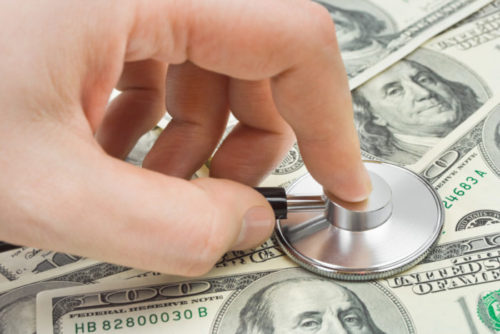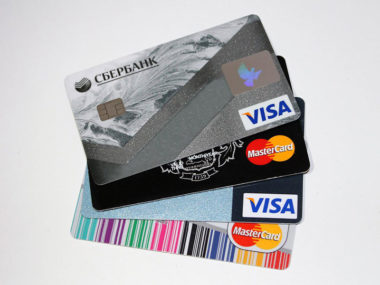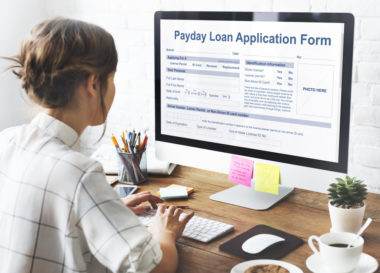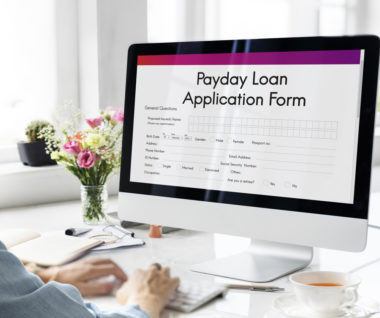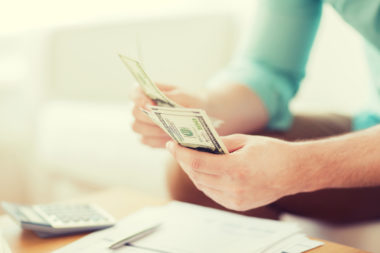An emergency loan is an unsecured personal loan that can be used to cover large and unexpected expenses, such as home repairs or a medical bill. Emergency loan funds will be dispersed quickly, often within several days of approval; in some cases, you may have access to your funds on the same day. The amount of money you borrow will depend on how much you need and who your lender is.
Taking out an emergency loan is similar to taking out any other type of personal loan. Some lenders may not specifically advertise “emergency loans,” but offer personal loans with a fast application and approval process instead. Because they are unsecured, you probably won’t have to put up any collateral for the loan.
If you can’t pay it back right away, an emergency loan may be a better option than making a charge to your credit card. They tend to have lower interest rates than credit cards, so you’ll likely pay less in interest fees on your loan. Their accessibility and flexibility make emergency loans a simple and effective way to deal with life’s financial curveballs.
Table of Contents
Types of Emergency Loans
Emergency loans most commonly come in the form of a personal loan. However, there are several other ways you can get a loan on short notice, including:
- Payday loans: Similar to a personal loan, a payday loan is a small, short-term loan. You give the lender a postdated check, and they let you walk out with cash (typically, this amount will be slightly less than the value of your check). When payday comes around, the lender will cash your check to repay the loan. Payday loans are fast and easy to qualify for, but often have extremely high interest rates and a short repayment period.
- Pawnshop loans: This involves giving a valuable item to a pawn shop in exchange for a loan. Rather than pawning the item, you can get it back after you repay your loan. If you don’t repay your loan, the pawnshop can sell your valuables. Pawnshop loans also tend to charge high interest rates.
- Credit card cash advances: You can withdraw cash from your credit card, rather than your debit card, in the form of a cash advance. Again, this is an almost guaranteed way to get money quickly, but you will likely be saddled with sky-high interest rates and additional fees that may make the loan more difficult to pay off.
- Title loans: A title loan requires you to put your vehicle up as collateral. You give the lender the title to your car in exchange for cash. If you can’t repay the loan, then the lender can keep your vehicle. Title loans also tend to come with high interest rates and a short repayment period.
You should think twice before taking out any of these other kinds of loans. They are all somewhat predatory in nature and are usually difficult for borrowers to pay off, especially if you’re already facing financial uncertainty. These loans can offer relief, but they can also devastate your finances. Only use them as a last resort if you are unable to obtain an emergency personal loan.
Reasons to Get an Emergency Loan
Any unforeseen expense that you aren’t prepared to deal with is a good reason to take out a loan. Common reasons to get an emergency loan include:
- Medical bills;
- Rent or mortgage payments;
- Utility bills;
- Funeral expenses;
- Home repairs;
- Car repairs.
You should only take out an emergency loan to pay for necessary expenses that you can’t otherwise cover, not as a way to treat yourself. Because emergency loans are usually personal loans, you typically have a lot of flexibility with how to use the funds. Emergency loans are useful, but they can still wreak havoc on your finances if you aren’t careful.
Where to Get an Emergency Loan
There are several different ways you can get an emergency loan:
- Bank: You can get an emergency loan from a traditional brick-and-mortar bank. Depending on your needs, you can get a loan from your current bank or another institution. Each bank will have its own qualifications and loan terms, so make sure to compare several different options before committing.
- Credit union: A credit union is another viable option for an emergency loan. However, credit unions require membership, and you may have to be an existing member of a credit union to get a loan.
- Online bank: You can also try getting a loan from an online bank. Depending on the bank you choose, you may need to open an account before getting a loan. Some banks may provide pre-qualification offers for their loans, so you can determine whether you’re qualified before applying and avoid a hard credit check. Take care to find a trustworthy and reputable lender before committing to a loan from an online bank.
Even when you need money quickly, it’s important to take the time to find the right loan from the right lender. Doing so will help you get through this emergency smoothly without doing any long-term damage to your finances.
Can You Get an Emergency Loan With Bad Credit?
You can still get a loan if you have bad credit — but the terms of that loan may not be favorable for you. A low credit score makes you seem like a risky borrower. To protect their investment, lenders will likely charge a higher interest rate or additional fees. You’ll probably get a smaller loan, too, than if you had a better credit score.
There are also emergency loans and personal loans available for individuals with bad credit. These are both feasible short-term solutions that you should consider looking into, but you should also take steps to repair your credit. Doing so will help improve your overall financial health and set you up for better loan terms in the future.
Emergency Loan Alternatives
If you are can’t or don’t want to take out a loan, there are a few other ways you can try to get funds on short notice or deal with your emergency:
- Nonprofits: Consider reaching out to a local nonprofit or charitable organization to see if they can offer any assistance. Depending on what you need the money for, there may be a special organization or fund designed to help people encountering that specific issue.
- Home equity loan: A home equity loan or home equity line of credit (HELOC) can be an effective way to get a low-interest loan. However, this is only a suitable option if you own your home and you’re able to make your monthly payments. If you don’t, you could lose your home.
- Payment plan: Instead of making one large payment, talk with your lender to see if you can work out some kind of payment plan. Many lenders will be open to creating a repayment schedule, such as smaller monthly payments, but it’s best to ask sooner rather than later.
- 0% annual percentage rate (APR) credit card: If you have decent credit, you can consider applying for a new credit card that has an introductory 0% annual percentage rate. These promotional APRs can last anywhere from six to 18 months, giving you plenty of time to pay off your balance without worrying about interest.
- Paycheck advance: If you’re comfortable at work, try asking your supervisor or the HR department if you can take an advance on your next paycheck. If you have a 401(k) through work, you can also look into a 401(k) loan.
- Friends and family: Finally, consider asking your friend or family members for help. Asking your loved ones for a loan can be uncomfortable, but they may be willing to loan you money when other lenders aren’t.
Depending on your situation, these alternatives may work just as well as an emergency loan.
How to Get an Emergency Loan
The process of finding and applying for an emergency loan is similar to that of taking out a personal loan:
- Check your credit score: Double-check your credit score before you begin shopping for a loan. If you know what your credit score is in advance, you’ll have a better idea of what loan terms you may be eligible for, including how large of a loan you can get.
- See if you qualify: See if any banks have pre-approved you for a loan. While this doesn’t guarantee that you will receive a loan from that institution, it does indicate that, based on a light screening, you could be a good fit for their services.
- Shop around: Compare the terms of different loans that interest you before making any commitments. It’s worth taking some time, even in an emergency, to find a good loan. Think about how fast you will receive the loan, additional fees you have to pay, and interest rates, to determine the best loan for your needs.
- Submit applications: Once you’ve decided upon a loan, go ahead and submit your application. Make sure you have completed the application correctly and provide any necessary supporting materials, such as your paystubs or mortgage information.
- Receive funds: If you get approved, your lender will give you the loan funds. The loan will likely be deposited directly into your bank account.
With this loan, you’ll be prepared to deal with your current emergency. Once you’ve resolved the issue at hand, take time to prepare your finances for the next emergency. Even a small safety net can provide a large cushion, helping you avoid taking out another emergency loan altogether.
Image Source: https://depositphotos.com/
